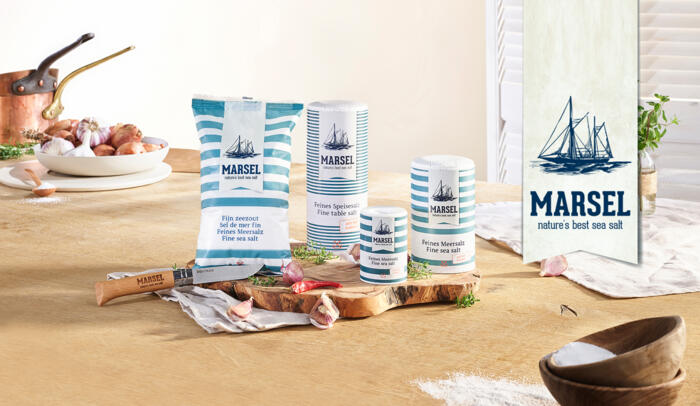Tips for choosing the right salt in the shops
When we stand in front of all salts on offer in shops, we have a hard job choosing one. This stands to reason as there are so many different types, from traditional kitchen salt to fleur de sel. But how do you know which is the most suitable salt for your kitchen? You should always look at the packaging of any kind of salt, and keep the following points in mind.

The term 'kitchen salt' is a generic term for salt that lends itself to culinary usage. It is not necessarily mine salt. Fine sea salt is also referred to as kitchen salt.
What kinds of salt can I find in the shops?
These days, you can choose from many different types of salt in your supermarket or local shop. We will take a look at the most important ones here:
- Kitchen salt*: also called mine salt, because it is extracted from underground salt mines. This salt is described on the packaging as 'vacuum salt' or 'salt extracted from underground beds where seas used to be'.
- Fine sea salt: sea salt with a fine grain, suitable for food applications. This is extracted from pure sea water.
- Coarse sea salt: sea salt with a coarse grain, suitable for producing salt brine and for salt mills, etc. This salt is extracted from pure sea water.
- Grey salt: non-refined salt - does not contain any additives.
- Fleur de sel: 100% natural sea salt - does not contain any additives. Extracted by hand and rich in minerals.
- Salt with or without iodine: kitchen salt which may or may not have added iodine.
- Special salt: Himalayan salt, herb mixes for spaghetti or fish dishes for example, black salt, etc.
* Note: The term 'kitchen salt' is a generic term for salt that lends itself to culinary usage. Kitchen salt must meet certain requirements, such as purity and moisture content, but the term does not say anything about the type of salt. Contrary to what many people think, it is not necessarily mine salt. For instance, fine sea salt is also referred to as kitchen salt.
Sea salt compared to vacuum salt
It is important to always look at the packaging, whichever the salt. Sea salt and vacuum salt look almost the same, though there are some important differences. Thanks to the natural and sustainable extraction process used for sea salt (the evaporation of pure salt water in salt basins), it contains more healthy minerals and trace elements than vacuum salt. Moreover, sea salt does not contain additives such as anti-caking agents. The balanced composition of sea salt gives it a subtle taste that enhances any dish.
Vacuum salt is primarily used for chemical applications, but also to a lesser extent for consumers. The salt brine from the underground salt layers are pumped and chemically purified.
Excellent price-quality ratio
Sea salt has a reputation for being exclusive. This is why people also expect it to be more expensive. Although sea salt does have some advantages, this type of salt is not necessarily more expensive than other types of salt. Packaging, among other things, plays a role here. However, knowing that a salt shaker lasts for almost a year, you can see right away that salt is still an extremely cheap product!
